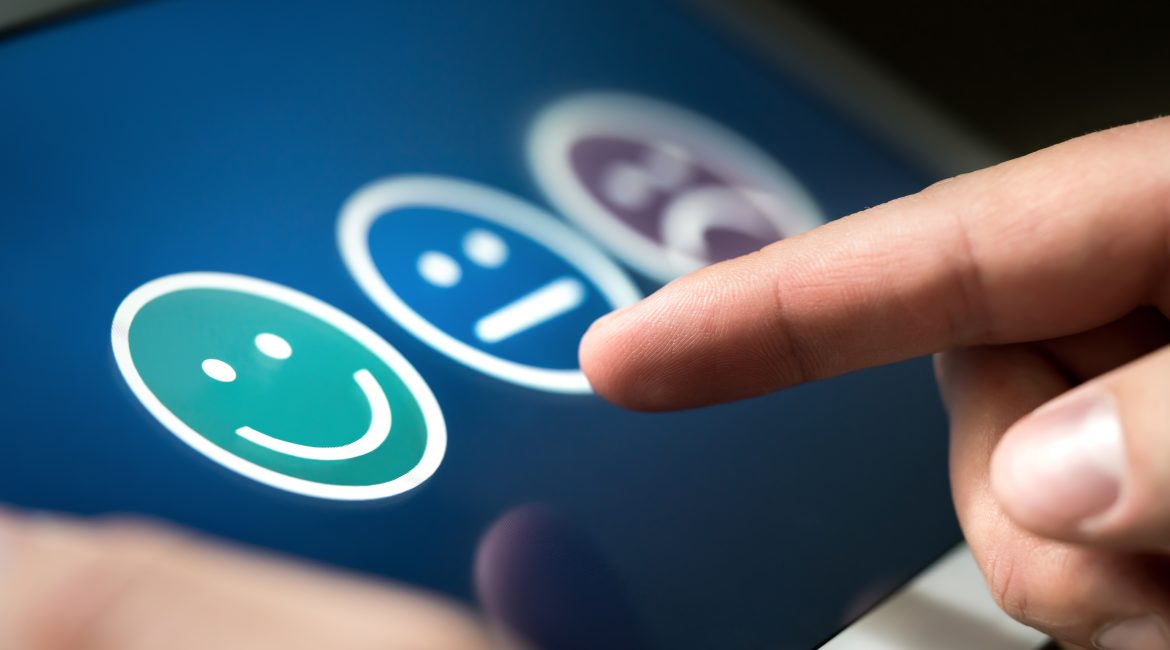A successful channel partner program is mutually beneficial. The more of your products your partners sell, the more revenue you can both generate. However, as distributors and resellers work with many different businesses and products, the challenge is empowering your partners and making your partner proposition standout.
One of the best ways to motivate your channel partners is with partner incentive programs. These programs recognise and reward your partners’ good work while also offering the motivation to continue improving so that they can reach and surpass the targets you set.
An effective channel partner incentive program is not as simple as a monetary reward once sales targets have been met. They should be built around the needs of your business and the desires of your partners. As well as sales, partner loyalty, training engagement and lead-generation tactics should be rewarded.
What are the Benefits of Partner Incentive Programs?
While increased sales may be the primary goal behind developing an incentive program, this is just one of many benefits, with strategic incentives contributing to a long-term synergistic relationship with your partners.
1. Incentives can accelerate the growth of your business
The purpose of incentives is to reward and encourage your partner’s continuing success and commitment – both of which help to grow your business. If the right channel incentives are tied to specific targets and milestones, partners will work hard to achieve them as quickly as possible.
Channel partnership success is mutually beneficial even without incentives, but incentives encourage a level of engagement and competitive urgency that helps you achieve your business goals much quicker. Incentivised partners are more motivated and proactive in their marketing and sales efforts, driven by their own progress, chance of reward and company goals.
On average, channel incentives can result in a sales boost of around 32%, which can be used to further grow your business and increase your market share.
2. They can help you enter new markets
Acquiring new channel partners can provide you with an express route into new markets. For example, you might begin a partnership with a distributor or reseller that already has several locations in a region you previously had no share in. Once your partnership is in place, these markets are suddenly open to you rather than you having to start from scratch.
Thoughtful channel partner incentive programs make partnering with you an attractive option for these types of businesses. Most channel partnerships are not exclusive, and incentive programs allow you to stand out as the primary company your partners want to work with, motivating them to share their local knowledge and distribution networks, as well as identify opportunities for product extensions and new target segments.
A study by the Incentive Research Foundation showed that companies using channel incentives experienced an average of 20% faster market entry than those who did not use incentive programs.
3. They enhance partner product knowledge and engagement with training
Not all incentives need to be sales-based. While you still want to encourage partners to hit and surpass sales targets, one of the best ways to facilitate that is with a training program that imparts extensive brand and product knowledge.
Incentives that reward partner completion of training modules or courses encourage active engagement with your training materials, ensuring that partners are equipped with your desired level of product knowledge, which in turn allows them to sell and represent your brand more effectively.
Make sure your training programs are easily accessible by using eLearning platforms that allow your partners to take on the courses on-demand, whenever best fits their schedule. It is also important that completion of a module or course (and unlocking the linked incentive reward) is regulated by the completion of a quiz or exam, rather than just reading the learning materials so you can be sure the knowledge has been absorbed.
You will likely want to save your more lucrative incentives for sales-based performance, but awarding certifications can be a strong motivator for partners to complete your training programs.
4. They give you a competitive advantage and boost partner loyalty
The right channel incentives encourage your partners to prioritise your business and products over your competitors. Incentivised partners are more likely to place repeat orders and will be eager to establish themselves as long-term associates. Incentivised partners will also be motivated to prioritise your business over your competitors.
If your incentives are consistent and financial, your partners will also want to ensure their relationship with you, as these incentives will contribute to a more stable revenue stream, allowing them to sustain their business.
Non-financial incentives, such as certifications or access to industry events or resources can also be incredibly useful to your partners as it allows them to grow and enhance their reputation. These types of incentives are particularly appealing to smaller partners looking to expand and can build the foundations for an enduring relationship.
Tiered incentive programs ensure there is always another target to hit and something to strive for. Rewarding the long-term loyalty of your partners as well as their sales performance is one of the best ways to encourage their continued commitment.
5. They can improve your brand awareness
Motivated channel partners are more likely to spread word of your business, beyond simply selling your products. In some cases, most of your business could be coming through your channel partners (70% according to a study by Forrester Research), which means you need to turn your partners into passionate brand advocates.
Not all customers will be aware of your brand when they decide to make a purchase. They may have an idea of what they are looking for, but customers will often be cautious about taking the leap on a new brand. This is where your partners come in, educating new customers on who you are and what you do.
The best way to encourage this is with incentive programs that create genuine interest for your partners and a desire to sell your products to as many customers as possible.
What Different Incentives Can Be Offered?
We often think of incentives as monetary rewards, but the way you incentivise your partners should reward the specific goals or milestones they have reached, and address their needs, which could include more industry exposure, access to more resources, certifications, discounts and more.
1. Sales-based incentives
The most common incentives are those that reward sales. These can be small rewards for immediate sales or larger rewards for hitting short and long-term sales goals. You should also look to work in upsell incentives that encourage partners to sell supplementary items such as add-ons, bundles, insurance or warranties.
2. Sales Performance Incentive Funds (SPIFs)
SPIF bonuses are given to channel partners when they hit predefined sales targets or goals. These types of incentives work well when you need to move products quickly, such as when promoting a new product for a holiday or event, as they provide a motivational burst and encourage your partners to prioritise your products over your competitors.
SPIFs can also be effectively employed to provide a sales boost during periods that are traditionally slower, resulting in a steadier revenue stream year-round.
SPIF incentives are usually given to the individual sales reps, rather than the partner, making them a great way to encourage friendly competition within your partner’s business. As such, these types of incentives should be tailored towards individual goals and desires rather than those of your partners, and may include monetary rewards, gift cards, entertainment tickets, getaways or even lunches with executives that provide an opportunity to network and progress the sales rep’s career.
3. Sales competitions
Similar to SPIFs, sales competitions focus on boosting sales, although these incentives reward your partners rather than the individual sales reps. Sales competitions put your partners in competition with each other, vying to be your top-performing partner and rewarded with prizes, certifications, awards or public recognition.
Partners involved in sales competitions may show an increased interest in your training programs, and may even pay for extra training (if that is a service you provide) to give themselves the best chance at winning.
4. Product education incentives
Training is key to improving your partners’ ability to sell your products more effectively, so it makes sense to create incentives around engagement with your training programs.
Reward partners who complete your essential training modules or courses with certifications and badges that increase their reputation within the industry, and provide extra rewards for those who decide to take on further training.
Partners with in-depth knowledge of your brand and your products will be able to answer customer queries with ease and sell more of your products by addressing customers’ specific pain points. This, in turn, will better place your partners to compete for sales-based incentives, ensuring there is always another target for them to aim for.
5. Referral incentives
Effective channel partners are not just resellers or distributors, they are brand advocates. As such, you should reward the partners who bring new clients or customers to your business. Offering bonuses for a set number of referrals or a smaller bonus for each referral are great ways to ensure your partners remain a steady source of business leads.
You can even set up a deal registration program where your partners can enter any leads online, which you can approve or reject, and then provide them with a time frame to close the deal to receive an incentive reward.
6. Activity-based incentives
As well as sales, your partners will be responsible for many day-to-day activities that support your ongoing relationship, such as data entry in CRM systems, carrying out product demonstrations for customers and managing contracts. Rewarding these behaviours with incentives ensures that your partners contribute to the wider goals of your company, not just sales targets.
7. Rebates
Rebates reward partners by giving them back a percentage of the sale. Rebates are usually volume-based, with partners only unlocking the discount once they have sold a predefined number of products. Rebates can also be used to reward different business objectives being achieved, such as retention rebates and growth rebates.
8. Discounts on wholesale products
Discounting your products for your partners based on their order quantity is a standard incentive to offer, but it can be incredibly effective. Partners who make larger wholesale purchases should receive those products at a lower rate per unit. Set up pricing tiers based on the total order or value of goods, encouraging your partners to place larger orders and experience more cost savings. It is a good idea to create these pricing tiers for each partner individually, as some may not be able to achieve the higher order volumes, but should still be incentivised to increase their orders within their means.
9. Market Development Funds (MDFs)
Market development funds are used to increase the local brand awareness of your channel partners, and may include local advertising such as radio spots, marketing events, trade shows or even webinars. You can help to support these activities by offering funds, resources or assistance as a reward for your partners hitting predefined targets.
10. CO-OP funds
If partner retention and ongoing loyalty are among your key business objectives, then cooperative funding is a great incentive to consider. CO-OP funding can be given in the form of account credits which can be used for wholesale discounts or redeemed for other rewards.
How Do You Track the Effectiveness of Your Channel Partner Incentives?
Once you’ve created the right incentive program for your channel partners, you need to be able to determine your ROI. Even if you’ve identified the most impactful targets and suitable rewards, measuring success will help to inform what is working and where adjustments may be needed, either to your incentive program or to the training, enablement and development your partners need.
Consider tracking the following metrics once your partner incentive program has been implemented and comparing those to pre-incentive figures.
Sales growth
Many incentives are sales-based, relying on your partners to hit pre-agreed targets to be rewarded. Overall sales volumes and sales by individual partners can be tracked against their previous performance to see whether there has been an increased performance since incentives were introduced. You can also track the sales of specific products if your incentives are based on promoting seasonal or new products.
Engagement
Partner engagement isn’t as straightforward to track as sales, but it is an important factor in how invested your partners are in your ongoing relationship. You can monitor participation rates in training courses and sales competitions as well as the number of partners achieving all goals in your incentive program, not just sales targets.
Partner satisfaction
Surveying your channel partners can provide first-hand insights into how your incentive programs are being received, by asking them about their motivation levels before and after the program began, how appealing the incentive rewards are, and how achievable the goals are.
Cost vs benefits
The core metric behind determining your return on investment is how much it costs to run the incentive program against how much revenue has been generated in increased sales and new leads. This analysis should also include projections as to whether your current program is sustainable, and should be monitored continually to ensure your incentives continue to motivate your partners beyond the initial excitement.
Brand awareness
One of the reasons you should be incentivising your partners is so that they bring your brand to the forefront of your potential customer’s attention. Whether customers are already familiar with your brand or not, they should come away from an interaction with one of your channel partners eager to engage with your products or learn more about you. Increased website traffic, contact form submissions and social media engagement all indicate that people are starting to take notice of your brand.
Completion of training courses
Incentivising your partners to complete training courses or specific modules is a great way to increase their product knowledge. Having exams or quizzes at the end of each course will ensure information is being absorbed, and then you can simply track the number of partners who have completed the course.
If you find that partners are beginning the courses but not completing them or failing the quizzes, you may need to look at how your training is being delivered and what adjustments can be made.
Best Practices for Developing a Channel Partner Incentive Program
Incentivise the most important behaviours for your business
While you want your partners to perform brilliantly in all areas, it may not be financially viable to offer incentives for hitting sales targets, completing training, remaining loyal to you and bringing in new leads. Ask yourself what the most important behaviours are concerning your business goals, and then offer your rewards proportionally. You may still be able to incentivise the lower-priority behaviours with non-monetary rewards.
Ensure the incentive program is easy to understand
Explain your incentive programs to your partners in a way that is easy to understand and refer back to. Outline the different targets you would like them to hit and how they will be rewarded for each.
Don’t overcomplicate your incentive program with multiple ‘currencies’ or tokens that can each be exchanged for different rewards – if you are planning a points-style incentive program, make sure those same points can be used to redeem all rewards, even if the points earned for different activities are earned at different rates.
Agree your targets to ensure the incentives are realistic
While lofty sales targets are tempting, if your channel partners can never reach them, they will quickly become disillusioned with your incentive program and cease to engage with it. You will have figures in mind, but work with your partners to understand what realistic targets look like and come to an agreement.
Don’t delay in giving your partners their earned rewards
Once your partners have earned a reward through your incentive program, don’t hesitate to give them their reward. Knowing that you will honour your agreement quickly ensures your partners’ ongoing engagement with your program.
Furthermore, once a partner does hit an incentive target, publicise that information through your network to celebrate their achievement and light the fire under your other partners to strive for their own success.
Analyse your results and adapt your program accordingly
Once your program is in place, ensure you are keeping track of your program’s results and note what is working and what isn’t. While it is not a good idea to move the goalposts while your partners are still striving for rewards, you might find that your program needs to be adapted for the future so it is sustainable.
You might find partners are hitting targets too easily which could reduce your ROI, or you might find they need help to reach them at all. Either way, it is important to strike a balance of achievable goals that still hit your business targets.
Having a channel partner incentive program is one of the best ways to motivate your partners and boost your sales, engagement and more. By identifying the right incentives that align with your partners’ needs and your business goals, you can work towards mutually beneficial success.
Providing channel partners with a bespoke training program is the best way to help them reach their targets and deepen their knowledge of your products and brand. If you are interested in learning more, then you can read this case study about how we helped one of our clients propel their initial partnerships from 700 to over 6000 global partners by implementing a cutting-edge training program.











